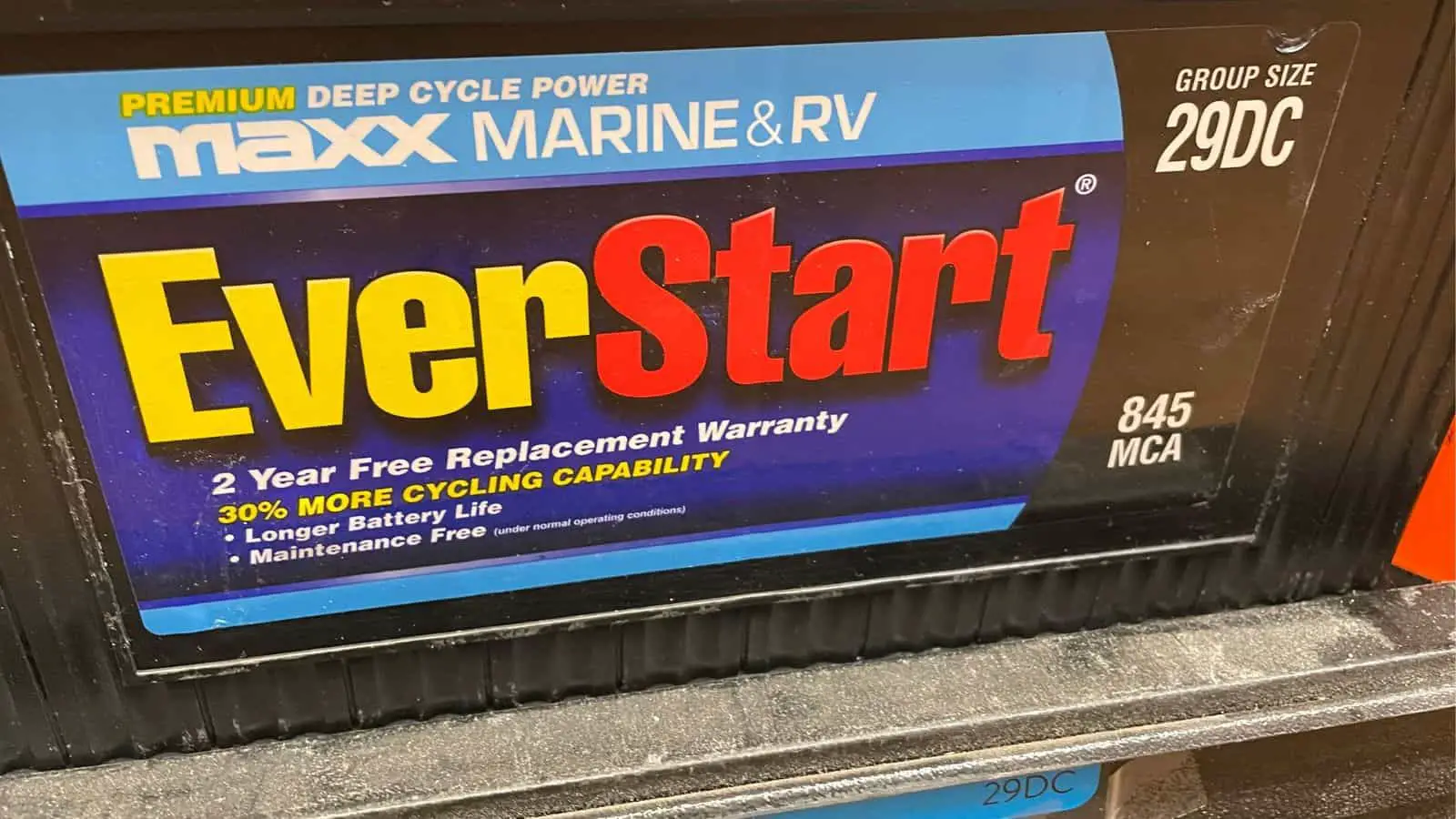America lives up to the cliché that it is the “world in one country,” and exploring the country in your own RV is a wonderful experience. Taking trips in an RV represents the epitome of the American dream. You work hard, achieve a level of financial independence, and, with an RV, you are free to travel around the country, experiencing the diversity of sights and activities it has to offer.
RV batteries life expectancies depending on the type of battery in the RV. The batteries with the shortest life expectancy are Lead Acid and AGM batteries which last between 2 to 6 years, Gel Cell Batteries which last up to 7 years; and Lithium-ion batteries which can last to 20 or more years.
It would help if you had a regular maintenance routine to keep your RV in optimum condition and have it ready for those spontaneous weekends away.
RV batteries do not last forever, and if you haven’t been checking and maintaining them, you may find your plans delayed as you act to reactivate the electrical power in your RV.
The Durability Of RV Batteries Depends On The Type Installed
There are four types of RV batteries recommended for use in your RV. These are
- Lead Acid RV batteries
- AGM RV batteries
- Gel Cell RV Batteries
- Lithium-Ion RV Batteries
Below we look at each battery type and its strengths and weaknesses.
Lead Acid Batteries Are The Cheapest Option For An RV
Lead Acid Batteries are commonly installed in RVs.
The Strengths Of Lead Acid Batteries Are
- They tolerate a degree of overcharging.
- They are the cheapest type of battery.
- They hold a very high charge rate.
The Weaknesses Of Lead Acid Batteries Are
- They have the shortest life expectancy of all the batteries.
- To extend their life, they need to be maintained at least every six months, which must include topping the distilled water to replenish lost electrolytes, cleaning, inspection, and testing.
- If not carefully cleaned and maintained, they can leak corrosive acid.
- They discharge at a higher rate even if no power consumers are attached. To prevent this, they should remain on a trickle charge while not being used.
- They need to be securely installed as they do not cope with vibration very well.
- If the lead-acid battery discharges in cold weather, it becomes prone to freezing.
- The electrochemical reaction of a lead-acid battery releases hydrogen and oxygen, which also increases when the battery is overcharged (which can explode if exposed to a heat source).
AGM RV Batteries Offer An Improvement Over Lead-acid Batteries
AGM batteries are a significant advancement in battery technology.
The Strengths Of AGM RV Batteries Are
- They can operate as a deep cycle battery, where they are consistently charged and discharged.
- They can also operate as a starting battery which supplies high power levels to appliances that require bursts of energy to start. The burst of energy only discharges the battery 1- 3%, and then the charging system takes over.
- AGM RV batteries are sealed so they don’t spill or leak; this means no corrosion at the terminals.
- They require no maintenance.
- When no electrical consumers are attached, they discharge slower than Lead-Acid batteries.
- They have a longer expected lifespan than Lead Acid batteries
- They are impact resistant
- They tolerate vibrations better than Lead Acid Batteries.
- They charge up to 500% faster than Lead Acid Batteries.
- They are better able to cope with charging off solar systems.
The Weakness Of AGM RV Batteries Are
- They don’t tolerate overcharging.
- They cost more than Lead Acid Batteries.
Gel Cell RV Batteries Are Very Easy To Install And Maintain
Lead-Acid, AGM, and Gel batteries are classified as Valve Regulated Lead-Acid (VRLA) batteries. Gel RV batteries have no liquid inside the battery cells; instead, a special silica gel that holds electrolytes together is used, which allows the electrons to flow freely from the plates.
The Advantages Of Gel Batteries For RV’s
- Gel RV batteries are maintenance-free and will not spill or leak.
- The terminals will not corrode.
- They can handle extremes of temperature.
The Disadvantages Of Gel Batteries For RV’s
- They are more expensive than Lead-Acid and AGM RV batteries.
- Overcharging causes irreparable damage to a gel battery.
- They charge slower than AGM RV batteries.
- They require a specific charger to charge within the specified profile.
- They shouldn’t be discharged below 50% capacity.
- They have a shorter expected lifespan than AGM RV batteries.
Lithium-Ion RV Batteries Are Expensive But Very Suited To RV Life
Lithium-Ion RV batteries have seen a huge increase in popularity, particularly with the advent of home-based solar power systems. They have many advantages over the other, more conventional battery types.
The Advantages Of Lithium-Ion Batteries Are
- They are the lightest of all batteries.
- They can be discharged to 15% of the total battery charge.
- Lithium-Ion RV batteries have a higher charging efficiency than the other battery types.
- They have the most extended lifespan (20 years) of all the battery types.
- Fewer Lithium-Ion RV batteries are needed to meet the RV power needs than the other battery types; this reduces the amount of space you need to install the batteries and reduces the RV’s weight.
- Lithium-Ion RV batteries cope with less ventilation than the other battery types.
- Lithium-Ion RV batteries are maintenance-free.
The Disadvantages Of Lithium-Ion RV Batteries
- Lithium-Ion batteries are more expensive. Over the long term, fewer Lithium-Ion batteries are needed, and Lithium-Ion batteries last 4-5 times longer than the other battery types.
- Lithium-Ion can’t be overcharged because this will cause plating of the metallic lithium. Most Lithium-Ion batteries have a Battery Management System which controls the amount of charge and discharge the batteries are subject to. At 100%, the battery stops accepting any more charge, and when the battery is discharged to 15%, it automatically shuts down and stops providing power.
Conclusion
The RV electrical supply must remain as reliable and available as possible. Costs aside, Lithium batteries are the best solution and will last for at least 20 years. If cost is an issue, then AGM batteries offer a more economical solution which a good balance of capabilities.
Good luck, and happy camping!
Check out our article on: Do I Need A Battery For My Travel Trailer?

